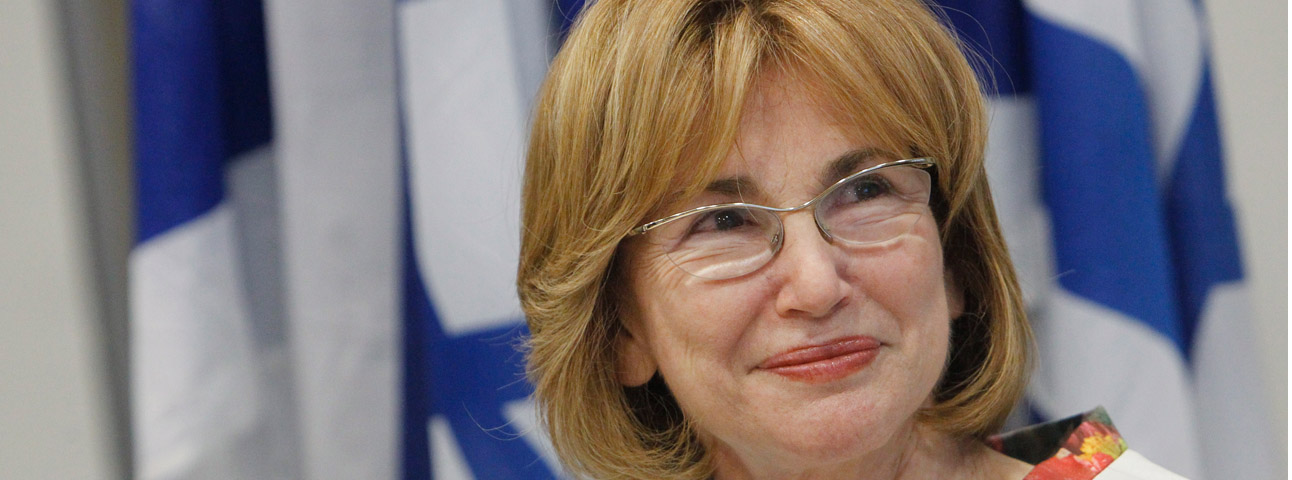Women in politics: The 2018 municipal elections are a golden opportunity

THE UPCOMING Israeli municipal elections this October, are a golden opportunity to increase the scarce representation of women in local government. In contrast to the substantial improvement in the representation of women in the Knesset (from nine to 34 female MKs in just two decades), the change in local government lags behind. A look at Israel’s fifty largest cities reveals that only about 17% of city council members are women. Among these fifty cities, there is only one female mayor: Miriam Feirberg of Netanya. In contrast, in many other countries, there is a sharp rise in the number of female mayors. As of 2017, more than 20% of mayors in US cities, with populations larger than 30,000, are women. Global cities such as Paris, Madrid, Rome, Tokyo, Montreal, and Prague all currently have female mayors.
Political Positions in Israel – distribution by gender
* 50 largest cities
The absence of substantial numbers of women in Israeli local politics is far from being a mere statistic. According to theories of political representation, the underrepresentation of social groups in decision making bodies fosters sentiments of exclusion, frustration, and alienation. It also undermines the effectiveness of promoting the interests of these groups in the public sphere. Thus, the importance of women in public positions embodies ramifications beyond proper representation or political visibility. The Israel Democracy Institute’s political reform program recently analyzed the operational patterns of Members of Knesset. The research found that female MKs are more involved than their male counterparts in promoting bills and presenting parliamentary questions on issues concerning family affairs, children affairs and women’s rights. Therefore, the appointment of more women to key political positions is likely to result in the promotion of a variety of issues that otherwise may not be properly addressed. Our research has also found that local government is the dominant career path on the way to national-level politics. Underrepresentation of women in local politics could make it harder to further improve the representation of women in national politics. It is therefore vital to foster a substantial cadre of local female politicians.
Percentage of Women MPs: Israel vs. OECD
How, then, can we persuade more women to throw their hats into the ring and campaign in local elections? Over the past years, several NGOs have launched various programs intended to motivate, train and assist women to participate in local politics. For example, We Power operates a program named Women for Future Leadership; Nivcharot Union offers a toolbox for incumbent female local council members and potential candidates; and Women Against Violence encourages Arab women to compete in local elections. One should also add the pioneering efforts of ultra-Orthodox women to break cultural and religious barriers and present themselves as political representatives of a large public sector with specific interests.
Number of Women MKs
THE STATE must also be an active agent of change in this effort. Whilst this should not be done through compulsory measures, such as banning parties that forbid female candidates to participate in elections, Israel should adopt a clear moral position by creating incentives for parties to include more female candidates. A precedent on this issue was established four years ago and is about to be tested for the first time in the coming municipal elections. The Knesset amended the local elections law and now incentivizes municipal parties in which at least one-third of their elected councilors are women. Even if the financial bonus is not very high (a 15% addition to the public financing the party receives), this institutional incentive is groundbreaking and in-line with IDI’s policy recommendations from our project on the representation of women in politics. While the equal representation of women in politics remains a faraway goal, incentives by the state and nonprofit organizations are invaluable to removing the barriers and paving the way forward, and IDI will continue to promote our policy recommendations in this ever critical endeavor.
First published in the Jerusalem Report.
